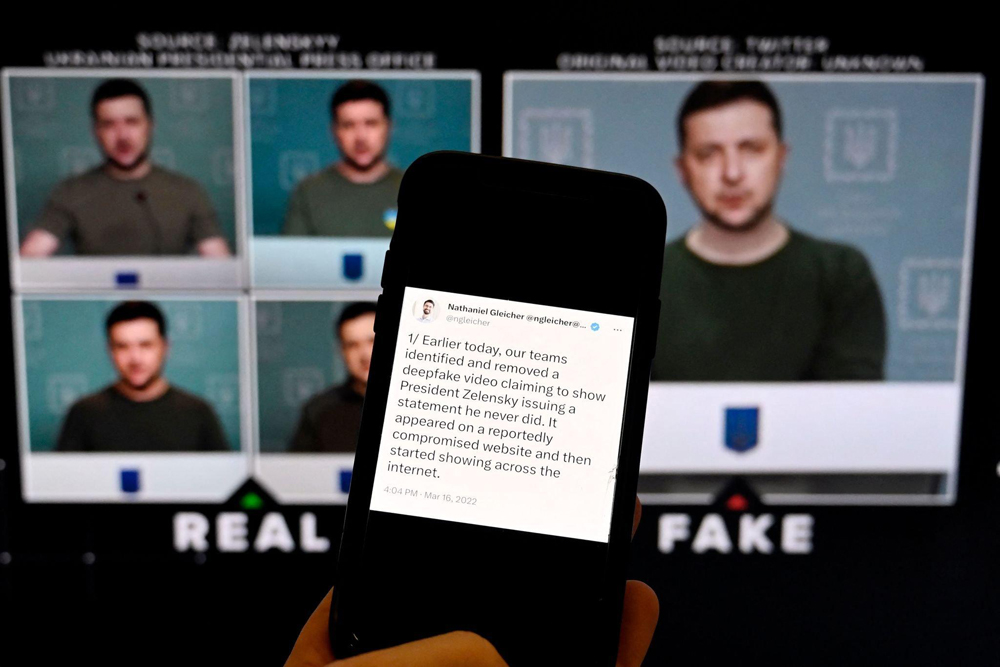Voice cloning is a technology that enables users to create a realistic-sounding digital copy of someone else’s voice. It uses artificial intelligence (AI) algorithms to capture and replicate the unique vocal characteristics of a person, creating an entirely synthetic version of their voice. This technology has been used in customer service applications and in the healthcare and education sectors. Malicious actors can also use voice cloning to trick businesses into believing they are speaking with a legitimate customer or partner. Therefore, businesses and law enforcement agencies must understand how this technology works and stay informed about the latest developments to protect their customers’ data from fraudsters.
Table of Contents
What is Voice Cloning?
Artificial intelligence can copy a person’s voice through voice cloning. This process is used for fraud through deep fakes, leading to identity theft. It produces high-quality audio recordings that mimic speech patterns and intonations accurately. On the other hand, it can also benefit industries like customer service, healthcare, and education. The implications of voice cloning for AI are being explored and are substantial.

How Does Voice Cloning Work?
In short, voice cloning works by recording an individual’s voice sample, then analyzing the audio recordings and extracting key components from the speech patterns. These components are then used to create a digital model of the person’s voice, which can be used to accurately clone their voices for new recordings.
Synthetic Voices
Synthetic voices are computer-generated voices created using AI and text-to-speech technology. These synthetic voices can narrate audiobooks, create voiceovers for videos or commercials, and even provide navigation directions in many apps and devices. Synthetic voices are becoming increasingly sophisticated and lifelike with each passing year, thanks to advancements in AI technology. They offer an efficient way of creating natural-sounding speech without needing a human voice actor, making them an invaluable tool for many businesses. With a range of different options available, there is sure to be a synthetic voice that perfectly suits your needs.
Human Voices
Human voices are the most natural and expressive way to communicate. They allow us to express our emotions and feelings, convey information and engage in meaningful conversations. Human voices are unique, with no two sounding exactly alike, and can be used to tell stories, sing songs or deliver speeches. Our voices are a part of who we are, which is why they can be powerful when conveying feelings and information. Whether it’s a teacher speaking to their students or a CEO delivering an important message to their employees, the human voice can make all the difference. With its wide range of tones, accents, and inflections, the human voice has no rival when communicating effectively.
Combining Human and Artificial Voices
When voice cloning technology utilizes recordings of actual human voices and machine learning algorithms to clone the speech patterns, it can create a unique combination of human-like and AI-generated speech. This hybrid of human and artificial voices can create realistic-sounding digital copies of people’s voices that are indistinguishable from the original. With its ability to capture the nuances of a person’s voice, this technology is being explored by many businesses in various sectors, from customer service to healthcare.

Potential Uses of Voice Cloning Technology
Voice cloning can be used for many good things, like creating more natural-sounding AI-generated voices for customer service, sales, healthcare, and education. It can also be used to create recordings of celebrities or public figures for entertainment and marketing. As this technology advances, there may be potential applications in personalized services like virtual assistants and automated customer care agents tailored to an individual’s needs. However, it is important to note that this technology can also be used for malicious purposes, such as identity theft, fraud, and other cybercrimes.
Deepfakes and Phishing Scams
AI voice cloning technology has become an excellent tool for cybercriminals. Scammers can use deep fakes to create convincing audio recordings of senior executives or customer service agents to carry out scams and phishing attempts. With the ability to accurately mimic someone’s voice, deepfake voice cloning recordings are almost indistinguishable from the real thing. They can trick unsuspecting victims into handing over sensitive information or funds.
Voice cloning is also used to create malicious audio messages in mass campaigns, encouraging recipients to click on malicious links or give away personal details. Deepfakes are also becoming increasingly difficult to detect due to advances in machine learning algorithms. As such, businesses must remain vigilant when recognizing potential threats to protect their customers and themselves from these attacks.
Credit Card Fraud
When you call your credit card company and use your voice as your password, do you know they have an audio sample of your voice on file? With voice cloning technology, it’s now possible to create a convincing fake audio recording that can fool the credit card company into thinking it’s you. If those audio files fall into the wrong hands, it’s game over.
Businesses need to be aware of the risks associated with voice cloning technology, as it can be used to bypass security measures and gain access to sensitive information or accounts. For example, a hacker could use a deep fake recording of a real person’s voice to access their bank account or credit card information from a financial institution. As such, businesses should implement strict security protocols to ensure that only authorized personnel can access their systems.
Imagine your business losing hundreds of thousands of dollars because a hacker spoofed your voice to make purchases or transfer money from your account. It’s crazy.
Wrapping Up
Voice cloning technology is a powerful tool that has the potential to be used maliciously by cybercriminals manipulating audio. Businesses and law enforcement agencies must stay up-to-date with the latest technologies and techniques to detect and prevent acts of fraud or identity theft using voice cloning. Businesses must also implement strict security protocols and measures to protect their customers’ data from malicious actors. Ultimately, voice cloning technology is likely to become more common as AI advances, so businesses, law enforcement agencies, and individuals need to remain vigilant regarding protecting their privacy. For more information on how you can protect your business from voice cloning scams, please send us a message.


Recent Comments